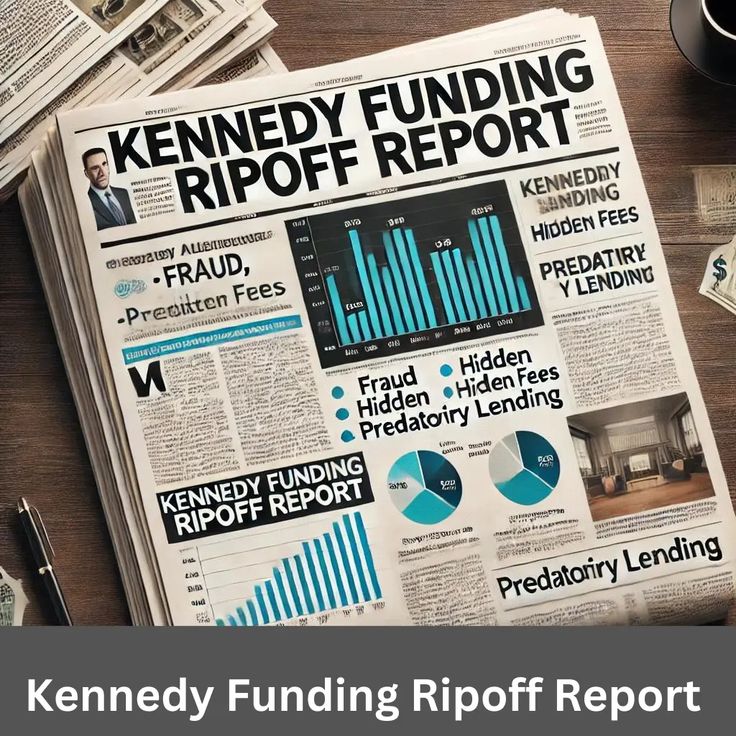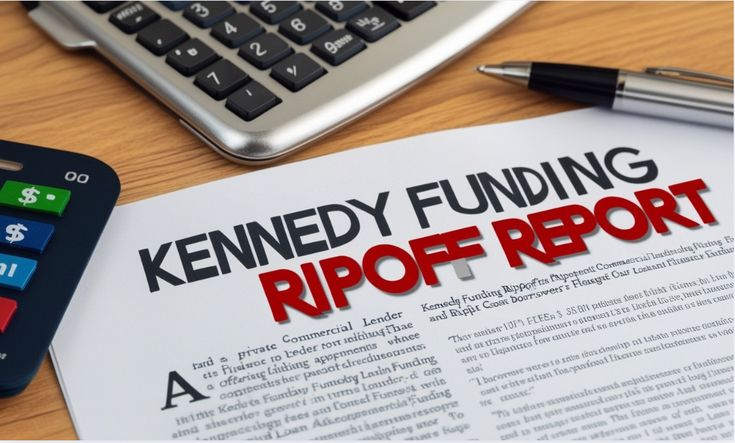Unpacking the Kennedy Funding Ripoff Report
In recent times, the phrase “Kennedy Funding ripoff report” has been surfacing on various online platforms, raising questions and concerns. But what is really going on? Is there substance behind these allegations, or is this simply a misunderstanding wrapped in online speculation?
Kennedy Funding, a private lender known for its commercial bridge loans, has been in business for over three decades. However, with growth and visibility often come scrutiny. This article dives deep into the ripoff reports associated with Kennedy Funding, questioning their validity while providing a balanced, fresh, and engaging perspective for anyone seeking transparency and truth.
Table of Contents
What Is Kennedy Funding?
Kennedy Funding is a direct private lender that specializes in short-term commercial loans, particularly for borrowers who may not qualify through traditional banks. Known for high-risk lending, they often fund projects involving real estate acquisitions, bankruptcies, foreclosures, and land development.
Their model appeals to businesses in need of fast capital, especially when time-sensitive opportunities are at stake. However, the very nature of high-risk lending often leads to divided opinions and, sometimes, negative experiences.
Do Ripoff Reports Mean a Scam?
When readers encounter the term Kennedy Funding ripoff report the immediate reaction may be suspicion or alarm. It’s important to approach this phrase with discernment. Ripoff reports can be legitimate complaints—but they can also be biased, emotionally charged, or even fabricated by competitors.
Several reports circulating online appear to involve disputes over loan terms, interest rates, or miscommunications. While it’s essential to acknowledge complaints, it’s equally vital to distinguish between actual unethical practices and client dissatisfaction arising from misunderstood agreements.

Examining the Complaints: A Closer Look
So, what do the Kennedy Funding ripoff reports actually claim? The complaints usually fall into three primary categories:
- Unexpected Fees: Some clients mention additional charges during the loan process that they claim were not clearly communicated beforehand.
- High Interest Rates: Borrowers have expressed concern about the rates being much higher than traditional bank loans.
- Rejections After Initial Approvals: A few reports suggest loans being denied after initial pre-approval, leading to frustration and lost time.
Let’s be real—any lending institution, particularly one involved in bridge loans and high-risk ventures, will have tight policies and higher fees. That’s how they mitigate risk. But were these policies hidden or deceptive? That’s where the evidence becomes less clear.
Are the Reports Valid?
Not all complaints necessarily point to wrongdoing. Many ripoff reports lack full context. For instance, one client’s complaint about being denied a loan doesn’t always include the reasons for denial—like incomplete documentation or misrepresented financials. In high-risk lending, due diligence is strict, and any inconsistency can lead to a deal falling apart.
That said, if multiple clients echo the same issues over time, there may be room for improvement on Kennedy Funding’s part in terms of clearer communication and expectation setting. Transparency is key in any financial partnership, and that goes both ways.

Transparency in the Lending Process
A strong point in Kennedy Funding’s favor is its relatively open loan process. Their website clearly outlines the loan application, funding parameters, and terms. This level of transparency is not often seen in private lending circles.
Still, it’s essential that every borrower fully understands what they are signing up for. That includes carefully reviewing term sheets, asking direct questions, and ensuring there’s no ambiguity. Relying on verbal confirmations or assumptions can easily lead to disappointment, and unfortunately, fuel future ripoff reports.
Eco-Friendly Consideration in Lending
In today’s world, being eco-conscious isn’t limited to manufacturers and retailers. Financial institutions are also taking part in sustainability, and Kennedy Funding has shown interest in funding green real estate and development projects.
Although it’s not their primary marketing pitch, some of their funded projects involve sustainable housing and eco-tourism resorts. This aligns with modern eco-friendly financing practices and shows a degree of corporate responsibility that doesn’t always get the spotlight.
Kennedy Funding: Scam or Misunderstood?
Is Kennedy Funding a scam? Based on available facts, no, it is not a scam. It is a legitimate, licensed financial entity operating within the scope of the law. The “Kennedy Funding ripoff report” keyword has certainly gained traction, but that doesn’t equate to proof of fraud.
The financial industry is complicated, and every loan deal comes with a mix of risk, negotiation, and responsibility. It’s important to realize that not every negative review means a company is deceitful. In many cases, both sides may simply have different expectations.

Expert Take on Risky Lending
Experts agree that alternative lending, like the services Kennedy Funding provides, plays an essential role in the economy. It allows access to capital that would otherwise be out of reach for some businesses. However, they also caution that borrowers should conduct thorough research, consult with financial advisors, and review contracts closely.
Due diligence on the borrower’s side is just as critical as ethical lending on the lender’s side. This two-way street ensures both parties walk away satisfied—or at least fully aware of the risks involved.
How to Protect Yourself as a Borrower
To avoid becoming the next contributor to a Kennedy Funding ripoff report, borrowers should take these steps:
- Get Everything in Writing: Never rely solely on phone calls or verbal confirmations.
- Hire a Loan Advisor: An expert can help decipher complex terms and negotiate better deals.
- Understand the Fine Print: Hidden fees often live in overlooked clauses.
- Ask Questions: No question is too small when your business is on the line.
- Research the Lender: Look beyond the first page of Google. Read industry reviews, not just public complaints.
Also read: Augusta Precious Metals Lawsuit – What You Should Know
Final Verdict: Should You Be Worried?
If you’re considering working with Kennedy Funding, don’t let ripoff reports automatically turn you away. Instead, let them inform your approach. Ask better questions. Do deeper research. Come prepared.
The Kennedy Funding ripoff report phenomenon reveals more about the necessity of clear communication and preparedness in lending than it does about Kennedy Funding being inherently dishonest. As with any business dealing, knowledge is your best defense—and in this case, also your biggest ally.


